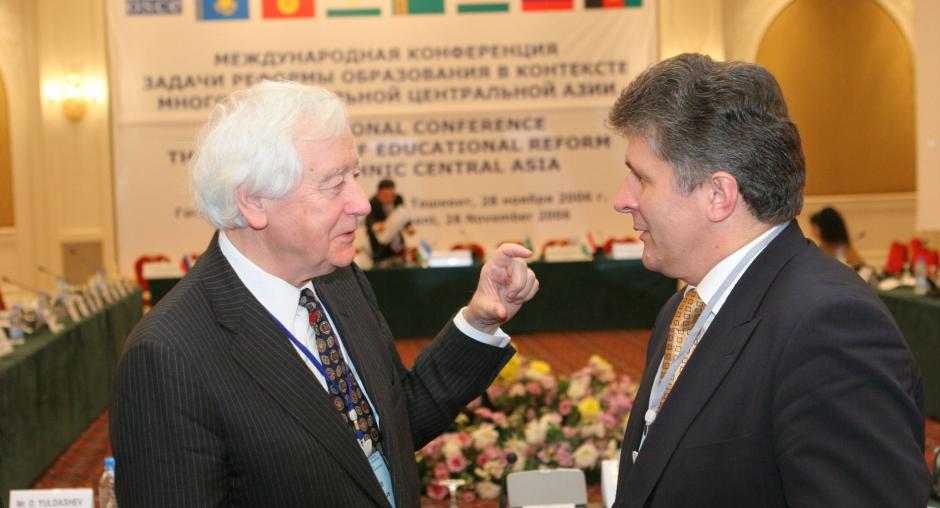OSCE High Commissioner welcomes inter-state dialogue on minority education in Central Asia

TASHKENT, 28 November 2006 - The OSCE High Commissioner on National Minorities, Rolf Ekeus, welcomed today the decision by four Central Asian States to launch a regular inter-state dialogue and assist each other on issues of social integration and national minority education.
"Future co-operation in this area can, I believe, help develop practical measures to strengthen and carry forward the modernization process of education in Central Asia and foster the sort of co-operation across the region that will further promote social integration within Central Asia's multi-ethnic nations," Mr Ekeus said, speaking at an international conference in Uzbekistan's capital, Tashkent.
The High Commissioner also stressed that formalized co-operation would help ensure the respect for the educational rights of persons belonging to national minorities, promote good neighbourly relations and decrease the costs of education reform.
The four Central Asian States - Kazakhstan, Kyrgyzstan, Tajikistan and Uzbekistan - agreed to establish four working groups on the issues of curriculum and textbook development, language teaching, teacher training and in-service training, as well as distance learning and information technology. They announced that the working groups would meet regularly to discuss on-going and prospective inter-state co-operation and mutual assistance in these four areas. A first working group meeting is scheduled to take place early 2007.
The agreement was reached at an international conference in Tashkent, organized by the High Commissioner and Uzbekistan's Ministry of Public Education. Turkmenistan, the Russian Federation and Afghanistan also took part in the event, which focused on the "Challenge of Educational Reform in Multi-Ethnic Central Asia". They were invited by the four States to assist the process in relevant areas.
